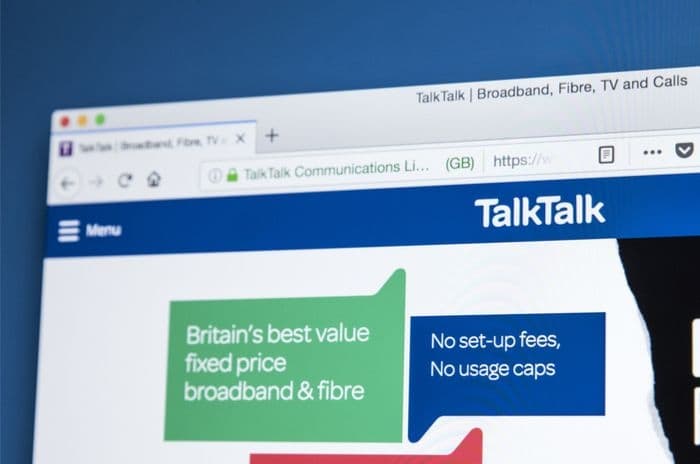Home > TV & Broadband > News > TalkTalk latest to move to pounds and pence price rises
TalkTalk latest to move to pounds and pence price rises
TalkTalk is the most recent fixed-line broadband provider to adopt the new pounds and pence based annual price rises.
From 12th August 2024, all new TalkTalk broadband contracts will be subject to a £3 per month annual price rise policy.
The move follows BT, EE, Plusnet and Vodafone, with Ofcom set to ban inflation-linked mid-contract price hikes from January 2025.
While a £3 raise is starting to become the norm, it's also already raising some concern around fairness and whether customers will be better or worse off.

TalkTalk annual price rise
TalkTalk are the latest broadband provider to adopt the pounds and pence-based method of annual price rises following Ofcom's decision to ban inflation-linked mid-contract price hikes.
New customers and those re-contracting with the provider from 12th August 2024 will find their contracts subject to the new pricing policy to increase prices on an annual basis by £3 per month effective from April 2025.
However, existing customers and those who join before 12th August will still see rises based on the Consumer Price Index (CPI) + 3.7% until they recontract or switch away.
For example, new customers on TalkTalk's Fibre 65 plan will see prices rise from £28 per month to £31 per month in April 2025, while those on older CPI+3.7% contracts could see a price rise of just £1.60 to £29.60 per month if the CPI rate of 2% for June remains unchanged.
Susie Buckridge, TalkTalk CEO, said, "For more than 20 years TalkTalk has focused on delivering value for customers. We remain fully committed to providing great value broadband and ensuring our customers have a clear understanding of the price they will pay throughout their contract. We will be moving away from an inflation-linked annual broadband price rise to a flat increase following Ofcom's new guidance. We believe this will help improve transparency and consumer understanding of the change."
For better or worse
While TalkTalk's £3 increase matches the amounts chosen by BT, EE, Plusnet and Vodafone, these blanket increases are already gaining criticism in terms of fairness for those on the cheapest deals, with the increases no longer proportional to the monthly bill.
Ofcom chose to ban both inflation-linked and percentage-based price rises on the basis they weren't clear enough for customers to understand. Yet, one advantage lost by percentages is the increases at least remain proportional.
A £3 increase on a £28 monthly broadband bill amounts to a rise of 10.71%, yet for those on more expensive plans, say TalkTalk's Full Fibre 900, which costs £49 at the start of the contract, would see a rise of just 6.12%.
Indeed, Three UK, who've also recently moved to a pounds and pence-based method, have decided to adopt a tiered pricing structure for just this reason. They've set mobile contracts to increase based on the data allowance, so those on the cheapest deals will see bills go up by £1, while those on bigger plans will see rises of £1.50 instead.
Three UK are the first provider to vary increases like this, although their 4G/5G home broadband plans will see a blanket rise of £2 per month.
And while broadband providers are sticking to £3 rises so far, Vodafone has chosen a £1 rise on their mobile contracts, undercutting both EE's £1.50 rise and Three UK's tiered rises.
Broadband and mobile providers have until 17th January 2025 to become compliant with Ofcom's new rules, so we may see other providers varying their approach too. For example, Community Fibre have just launched a fixed price contract offer for all new customers until 4th November 2024, while they've yet to reveal their long-term strategy to the changes.

We are independent of all of the products and services we compare.

We order our comparison tables by price or feature and never by referral revenue.

We donate at least 5% of our profits to charity, and we have a climate positive workforce.
Get insider tips and the latest offers in our newsletter






Comments